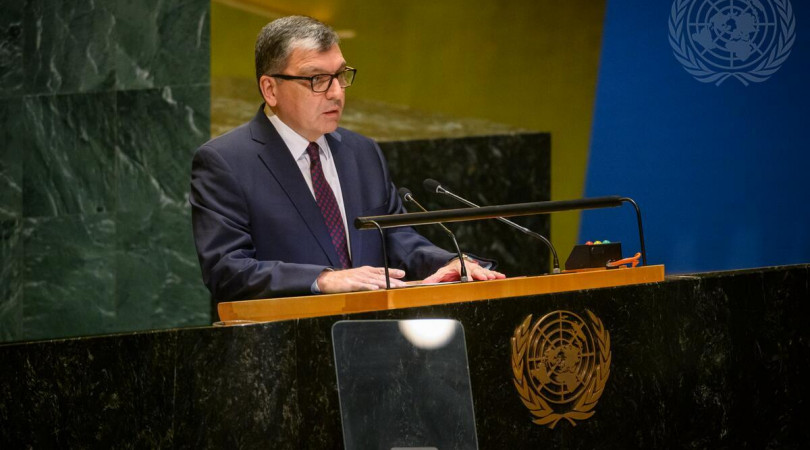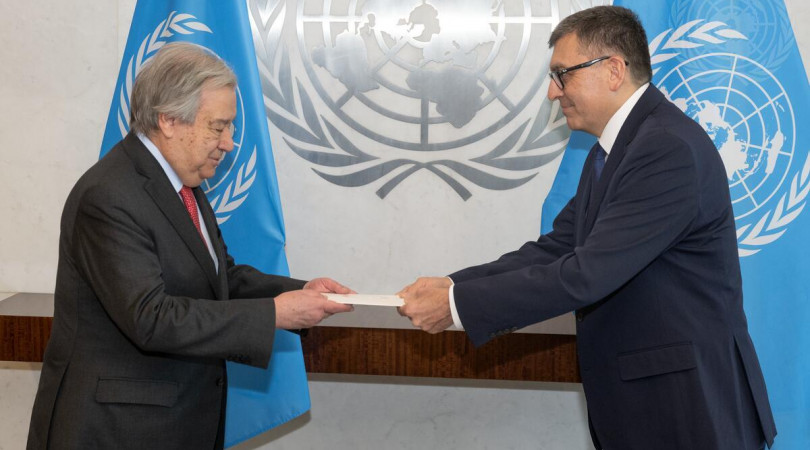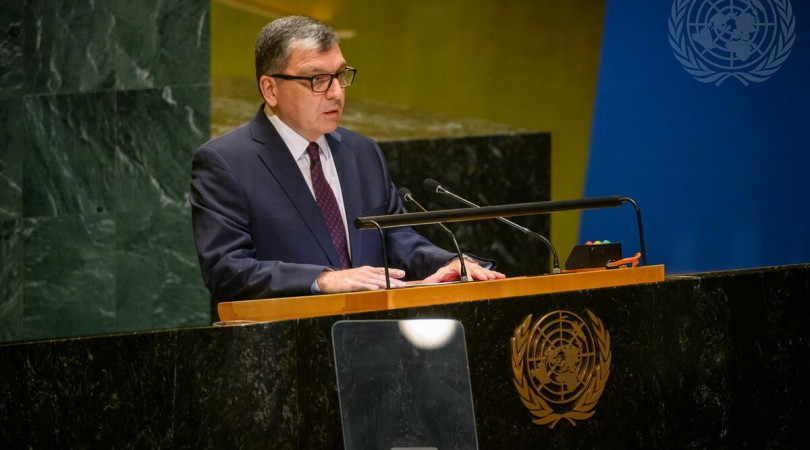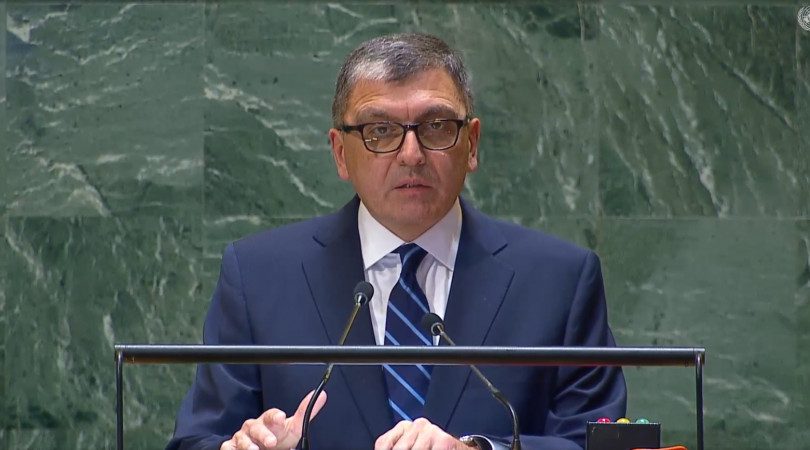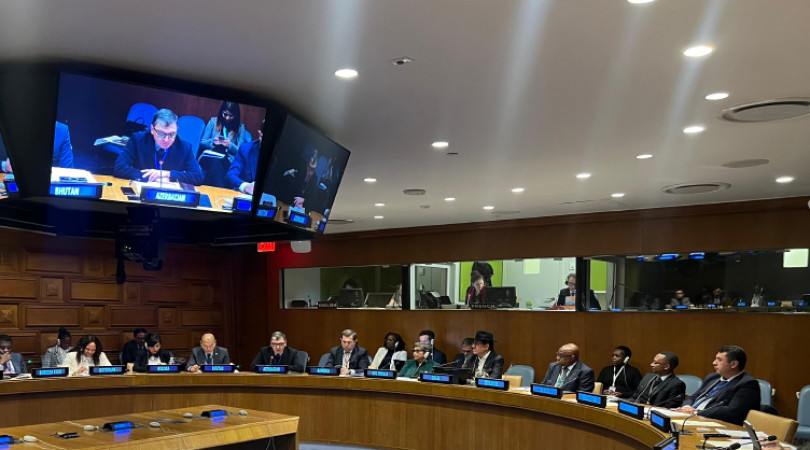Statement by Mr. Tofig F. Musayev Deputy Permanent Representative of the Republic of Azerbaijan to the United Nations at the plenary meeting of the seventy-ninth session of the United Nations General Assembly under agenda item 73: "Report of the International Court of Justice"
|
Azərbaycan Respublikasının |
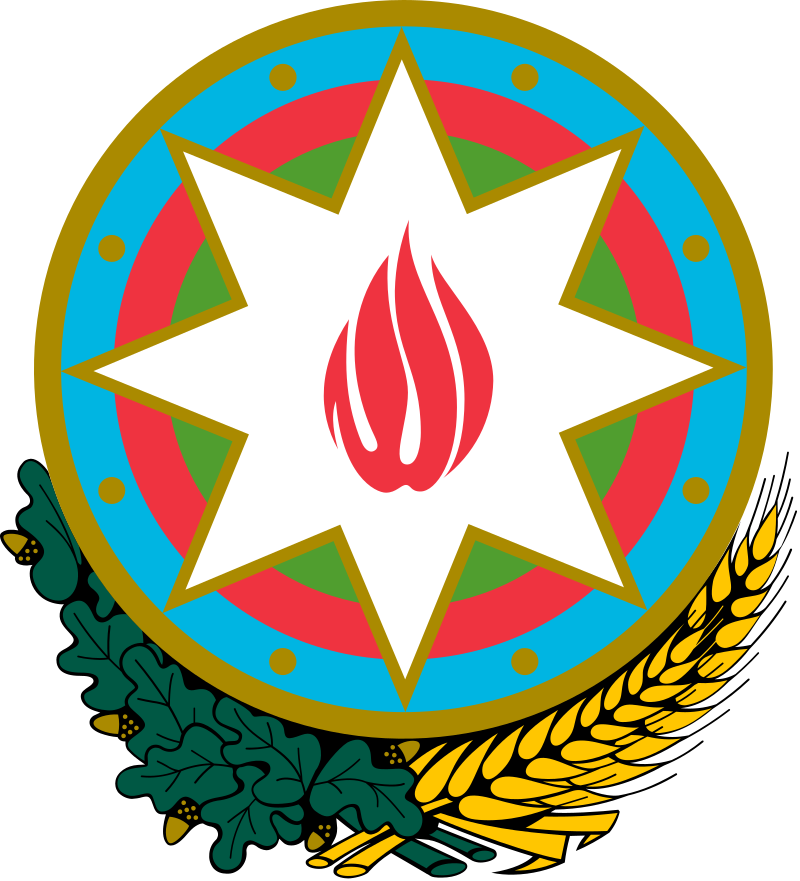 |
Permanent Mission |
|
633 Third Avenue, Suite 3210, New York, N.Y. 10017 |
||
|
Statement by Mr. Tofig F. Musayev Deputy Permanent Representative of the Republic of Azerbaijan to the United Nations at the plenary meeting of the seventy-ninth session of the United Nations General Assembly under agenda item 73: "Report of the International Court of Justice"
30 October 2024
Mr. President,
At the outset, I would like to thank the President of the International Court of Justice for presenting the report, which covers the activities of the Court between 1 August 2023 and 31 July 2024. Among other proceedings, the report refers to the case instituted by Azerbaijan in respect of the Application of the International Convention on the Elimination of All Forms of Racial Discrimination (CERD). As the preamble to the CERD provides, the States parties are resolved to “prevent and combat racist doctrines and practices”. Such doctrines and practices lie at the heart of Azerbaijan’s complaint, which essentially concerns the fact of a wholesale repudiation of the principles that the CERD was established to secure and the resulting violations of the obligations under the Convention on a continuing basis.
Mr. President, The peaceful settlement of disputes remains one of the key principles of the United Nations. The commitment to resolving disputes through peaceful means and in accordance with international law is one of the cornerstones of the notion of the rule of law at the international level. The point to make in that regard is that international law requires not just a particular outcome, but that such outcome be accompanied by a process that is consistent with concrete norms, done in a manner that precludes the recrudescence of a dispute and achieved peacefully and in accord with international peace and security, and justice. In that sense, as the principal judicial organ of the United Nations, the International Court of Justice plays an important role within the international legal system. The increasing number of contentious and advisory proceedings, the geographical scope and diversity of the cases brought before the Court and the significant number of judgments and orders delivered during the reporting period reflect the Court’s dynamism and the growing recognition of its contribution to global peace and security and the development of international law. Mr. President, Article 36(2) of the Statute of the Court requires that a matter brought before it should be a legal dispute. The value of judicial settlement is high as its essence is that it takes place within a legal framework and upon the basis of legal norms. At the same time, it is important to see the bright line that must be drawn between claims and a State’s right and responsibility to protect its people, defend its sovereignty and territorial integrity and ensure accountability and individual criminal liability for serious violations of international law. Evidently, for the process of settlement to operate successfully, the Court must not be misused to promote and advance political goals aimed at challenging the security, sovereignty and sovereign rights of the States concerned, including through attempts to shoehorn claims into a legal framework. The parties to a dispute must take greater care to ensure that their conduct and rhetoric are consistent with their broader obligations under international law and the ensuing objectives, principles and long-term prospects of the peace agenda. There can be no justification for the neglect of underlying facts and misinterpretation of the Court’s proceedings and rulings for propaganda and disinformation purposes by the parties to a dispute, as well as by other external circles aligned with shared political objectives. It is therefore important to further strengthen global efforts to combat the plague of mis- and disinformation, evaluate claims with extreme caution and great reserve and rely on evidence that is fully conclusive and obtained by skilled examination. Azerbaijan has been and remains fully committed to the universally recognized norms and principles of international law and will continue its efforts to build sustainable peace and promote conflict prevention, justice and accountability.
Thank you. |
||

